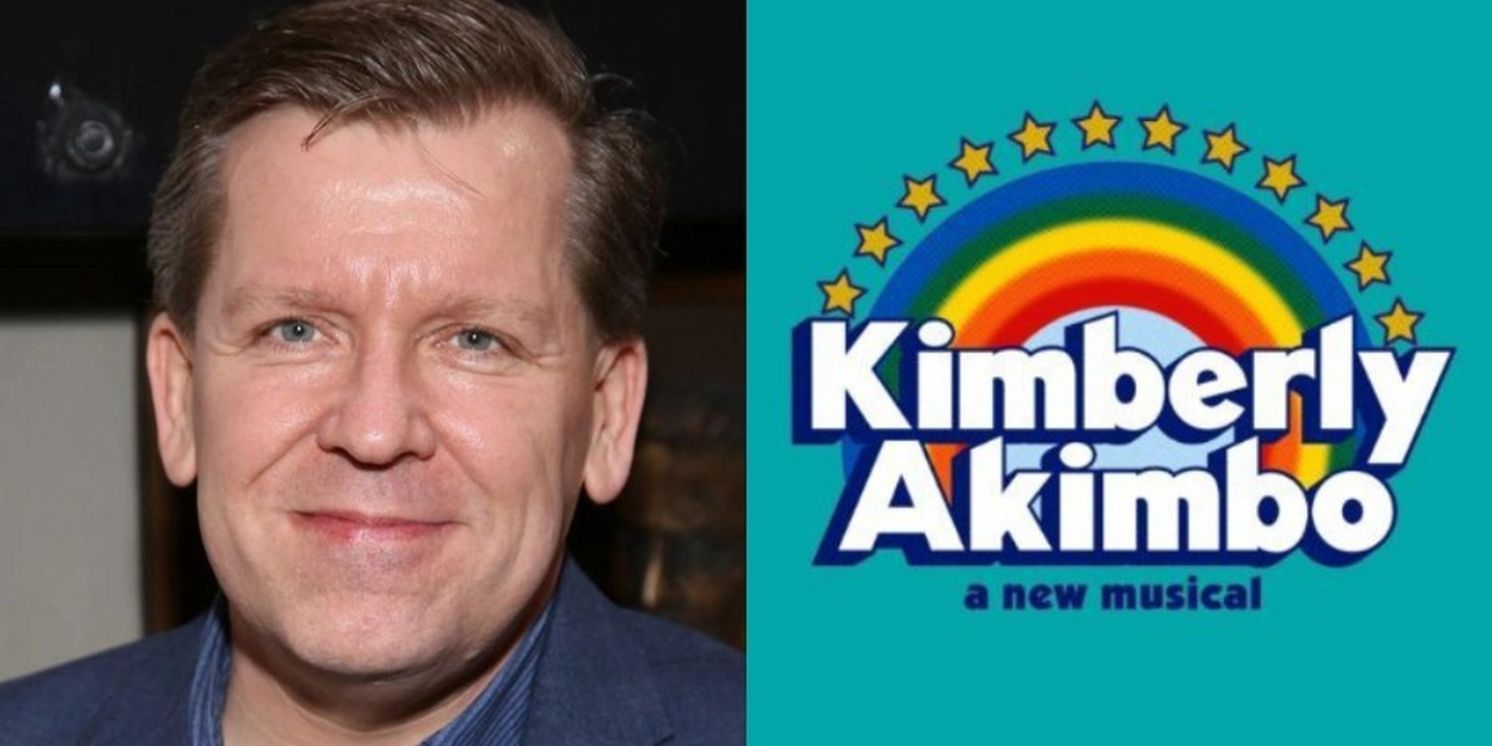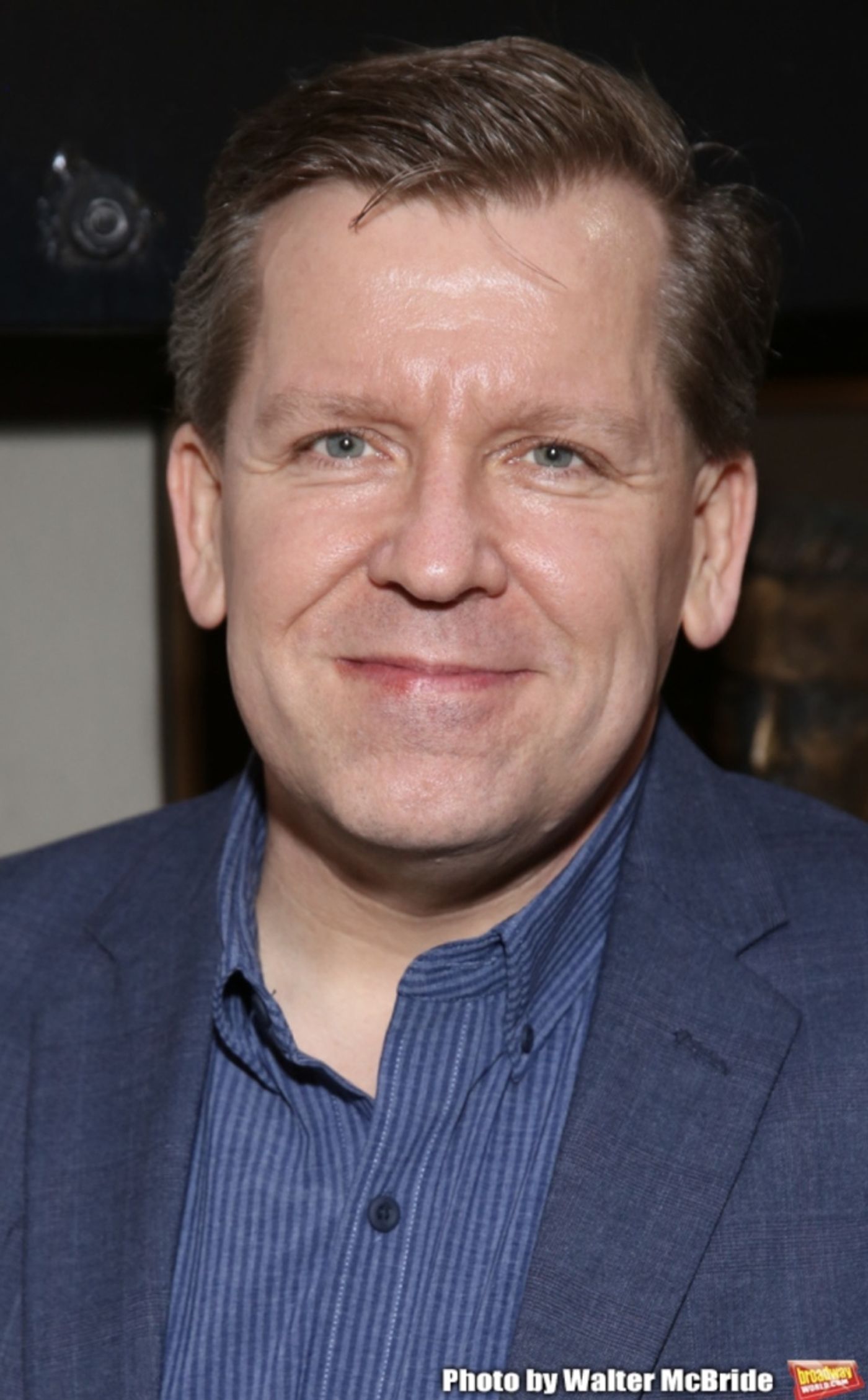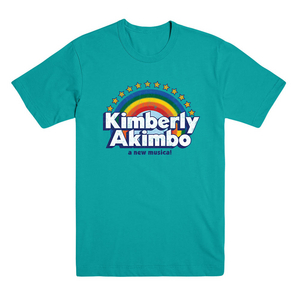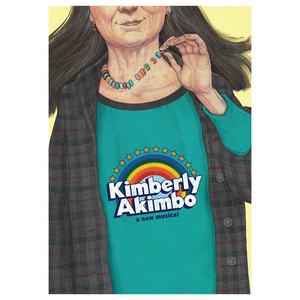Interview: How Playwright David Lindsay-Abaire Gave KIMBERLY AKIMBO A Musical Makeover
David Lindsay-Abaire is the Pulitzer Prize-winning author of Rabbit Hole, Good People, and Ripcord, as well as the book writer and lyricist of Shrek the Musical.

 Before Kimberly Akimbo was an acclaimed musical, it was an acclaimed play by a relative newcomer (and future Pulitzer Prize-winner) named David Linsday-Abaire.
Before Kimberly Akimbo was an acclaimed musical, it was an acclaimed play by a relative newcomer (and future Pulitzer Prize-winner) named David Linsday-Abaire.
Originally presented in 2003 at Manhattan Theatre Club, the New York premiere of Abaire's touching dramedy featured a cast led by veteran actor Marylouise Burke, future Tony Award-winner John Gallagher, Jr., and SNL star Ana Gasteyer. The play explored the life of Kimberly Levaco, a teenager who lives with a condition that causes her to physically age prematurely and the dysfunctional family that loves and frustrates her. Acclaimed by critics, Abaire's play earned several nominations including nods from the Drama Desk and Outer Critics Circle awards.
After Kimberly's original Off-Broadway run, Abaire went on to pen several notable plays, earning a Pulitzer Prize for his searing drama, Rabbit Hole. In 2006, Abaire made the jump to musicals, penning the book for the Broadway adaptation of High Fidelity. David followed that project with another adaptation: a musicalized take on the popular fractured fairytale, Shrek. To bring the Shrek's storybook world to life on the musical stage, Abaire joined forces with Tony Award-winning composer Jeanine Tesori.
After wrapping work on the high-profile affair, Abaire expressed his interest in continuing their partnership. While exploring options for potential projects, Tesori pulled a peculiar title from Abaire's library: his own Kimberly Akimbo. Abaire initially balked at the concept, failing to see the unlikely musical potential in the quirky story of a teenager with an aging disorder struggling within the dynamics of her disappointing (and casually criminal) home life and limited life expectancy.
Fast forward to the 2021 season, where Abaire and Tesori's Kimberly Akimbo: A New Musical opened to a critically acclaimed, standing-room-only, and award-winning, run at New York's Atlantic Theatre Company. In 2022, Broadway came calling, and shortly thereafter the show made the jump to midtown where it is currently playing to ecstatic audiences eight times a week at the Booth Theater.
We had the opportunity to chat with this dynamic playwright turned book writer and lyricist about the long short life of his geriatric teenage heroine, the road to Broadway, and the impact of Kimberly Akimbo on a multi-generational audience. Read what David had to say about his heartwarming hit in excerpts from our conversation below.
How did the specifics of Kimberly and her story come to be?
There were a couple of things going on. The earliest seed actually came when I asked a friend how his newborn niece was and he said, "Oh, she's amazing. She's like this wise old woman trapped in a baby's body." And I thought, "Well, that's weird," the literal person that I am. Then I started thinking more theatrically. I thought, "Well, what would be like for an older person trapped in, not in baby's body, but in a kid's body?" I thought what a great part it would be for an older actress. Then I had the perfect actress in mind and that was Marylouise Burke, who is a hilarious, brilliant, older actress who had been in all of my plays, and I thought I would like to write a play for her where she gets to play a 16 year-old girl.
The story and its humor are highly specific. So much so that it felt like at least some of it had to be pulled from reality. How much David Lindsay-Abaire is in Kimberly Akimbo?
Oh my gosh. It's chock full of David Lindsay-Abaire, and I don't even know that I knew it at the time. The sensibility is my sensibility. So no matter what I'm writing, whether it's an off-the-wall absurdist farce or something like a naturalistic family drama like Rabbit Hole, for example, the humor is there, it's just to what degree? And that's just a testament to my growing up very working class in Boston. My parents were working class people. My mother was a factory worker, my father sold fruit out of the back of a truck. Growing up in South Boston, my family and families around us often had horrible things happen to an operatic degree sometimes. And when lots of horrible things happen, sometimes the only way to cope with them is through humor. It just becomes so ridiculous, the hardships and how awful life can be. So the way my family dealt with it often was to laugh at how absurdly sad and awful things are. So the idea of of of comedy and tragedy living right next to each other and overlapping each other, that is just in my DNA and, I think, in the DNA of my family, but also most working class people.
As for the biographical stuff, there's lots of stuff in there, again, that I wasn't really aware was just full of confession. Seth is as close as I've ever gotten to putting myself on stage. That character is very much me, but Kimberly is just as much me. Feeling like an outsider inside my own house is very much the feeling that I had as a teenager growing up. I loved my parents and my family desperately, but they also made me crazy and I resented them and they frustrated me and I loved them and why couldn't they see me for the person that I thought I was? That's probably how almost every teenager feels. So it's not a unique feeling, but it was easy to channel into the play.
Did you always feel like the play had musical potential?
Never. No, it didn't even occur to me. It wasn't even my idea. It was, it was Jeanine [Tesori]'s. I had done the play. The play was the play and, and honestly, it was a story that I told at a very specific time in my life. It came from that who I was at that time. The best thing to come out of Shrek was the collaboration with Jeanine...She was the one who pulled Kimberly Akimbo off the shelf and said, "You know, I think this one sings, I think this has a big musical heart, and maybe this is something to think about." So we started thinking about it and talking about it and wrote a couple songs and it was a musical. I didn't know that it was and it Jeanine who told that to me.
It's rare that a writer gets to not only revisit their work but have the opportunity to deepen the world of the story and the souls of the characters via song. What was it like to get to know this piece and these people on a new level? Did any of your discoveries surprise you in that process?
Constantly, yes. In many, many ways. I also had the freedom to reinvent them and let them be who they are in this version of the story because so much has time has passed since the play. The play is the play, and those are those characters, and [in creating the musical] we could forget them and try to hold onto whatever the spirit and the seed of the play was that we loved. Jeanine was actually the person who really guarded the center of the play. She was always the one be like, "Oh, no, but remember in the play...?" and "You have to put this in," and "Don't forget that." So the play was always present, but at the same time, I felt the freedom to say this Deborah is a different Deborah. It's not the same person. And this Buddy is a different Buddy.
The parents, in particular, are less likable in the play. They're not so likable as in the musical. I hope they're more understandable and empathetic than they are in the play. Twenty years has passed, I was in my twenties when I wrote Kimberly and really connected with the teenagers, but now as the father of two boys I understand the parents in a way that I didn't then. As a father of teenage boys, I know that [Kimberly's parents] are not such monsters. Their behavior is coming from a terrifying fear of losing their child. I know that incredibly well. So this let me reinvestigate those characters in a new way and try to give them a little more dimension in the scenes, but also in the songs. I didn't have that tool when I wrote the play. So, hopefully I have become a better craftsman and a deeper thinker. So it was a great privilege to reinvestigate these characters in the story from a different perspective as a grownup.
Tell me more about working with Jeanine Tesori. What is it about your dynamic that makes you such natural collaborators?
What makes Jeanine so great is that we both respect each other deeply and we trust each other. She is an amazing dramaturg so she understands story structure and how narratives are built in a way that not all composers do. Composing music is a very different thing than writing a play or writing the book of a musical, and yet she understands it implicitly, which makes my job so much easier. It's deeply collaborative...The other thing that I think makes us a good team is that I'm very much a structuralist. I like a really solidly built thing, whether it's a play or a scene or a song. I'm a bit of a square. I'm a nerd. Jeanine will look at my stuff and say, "This is so good, but maybe we can loosen it up a little bit." She tends to be a little more wild in her ideas compositionally. So, I pull her in a little bit and she appreciates it, and she un-knots me in a way that is incredibly useful. So we're good for each other because we compliment each other and each other's work.
You and Jeanine last collaborated on Shrek, which was an adaptation of a massive established IP. What has been the difference in the process in creating that show versus the much smaller and more intimate Kimberly?
The main difference, of course, is that there was so much more pressure when writing Shrek. It was my first time out. It was a gigantic property where people had tons of opinions, both people that were working for the show and audience members People were prejudging the musical before they even walked into the door. Then you had the obligation to service the fans of the movie and Dreamworks. I was working for a lot of people. It's hard enough to tell a story. It's doubly hard to write a musical. It's one of the most difficult things to do. So that's a lot of stuff you don't need when trying to write a new musical. There was no pressure for Kimberly. Nobody knew we were doing it. Nobody was telling us what to do. We took our sweet time, we splashed around, and it was the most joyful, creative experience that I've ever had.
What has the reaction been to the story this time around? Have you noticed a difference in how audiences are responding to the musical versus the play?
I'm older, so I appreciate this experience more than you can imagine. There is a marked difference not just from the original play, but from any other project that I've done. There is an unadulterated emotional response from friends and colleagues that have seen the show that is very different to me...There's a genuine exuberance in their response that feels so sincere in a way that I just really appreciate. It's genuinely humbling.
I've been doing this a long time and I work hard and I hope people like my stories but there's just something extra special about this one that is connecting with people in a way that I won't even take credit for. It feels like it has little to do with me. Jeanine and I teed up this thing, and just got a bunch of really amazing people that knew what to do and did it right. All the stars aligned in a way that they seldom do in a show and this feels like the best version of this story that we could have told. Above all, I just feel grateful.
David Lindsay- Abaire is a Pulitzer Prize-winning playwright, screenwriter, lyricist, and librettist. His play Good People premiered on Broadway and was awarded the New York Drama Critics Circle Award for Best Play, The Horton Foote Prize, The Edgerton Foundation New American Play Award, and two Tony nominations. His previous play Rabbit Hole received the Pulitzer Prize for Drama, five Tony nominations, and the Spirit of America Award. David also wrote the book and lyrics for Shrek the Musical (Jeanine Tesori, composer), which was nominated for eight Tonys, four Oliviers, a Grammy, and earned David the Kleban Prize as America's most promising musical theatre lyricist. David's other plays include Ripcord, Fuddy Meers, Kimberly Akimbo, Wonder of the World, and A Devil Inside, among others. In addition to his work in theater, David's screen credits include his film adaptation of Rabbit Hole (starring Nicole Kidman, Oscar nomination), Dreamworks' Rise of the Guardians, and The Family Fang, among others. He is also, along with Tanya Barfield, Co-Director of the Playwriting Program at the Juilliard School.



